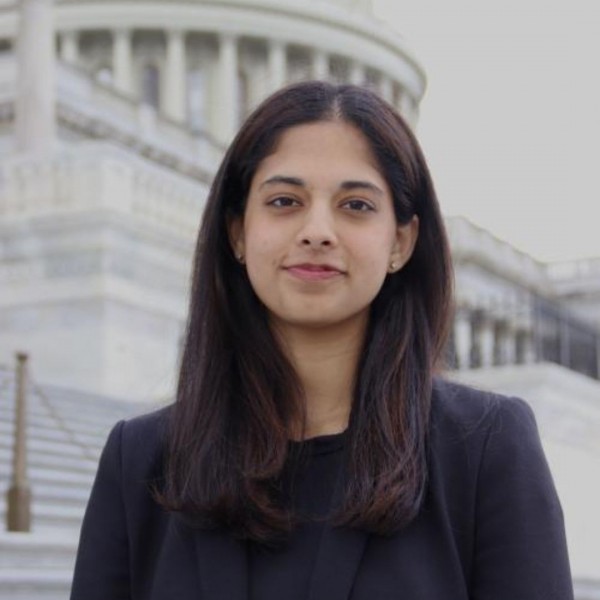GVPT Student Tara Davoodi Places 3rd Nationally in American Moot Court Association Rankings
From Curiosity to Courtroom Confidence: How Moot Court is Shaping GVPT Students Like Tara Davoodi
Tara Davoodi didn’t plan on becoming one of the top collegiate orators in the country. But curiosity took hold when she noticed the University of Maryland’s Department of Government and Politics (GVPT) Moot Court team hosting a scrimmage. Fresh off a course on constitutional policy and the U.S. Supreme Court (GVPT202), she decided to check it out. The rest is history.
“I always enjoyed listening to Supreme Court arguments,” she said. “I thought Moot Court would be a good way to explore this world more seriously — and see if it’s something I’d want to do long term.”
Fast-forward nearly two years, and Tara has her answer. During the 2024–25 competition season, she placed 3rd in the nation in the individual orator rankings for the American Moot Court Association (AMCA), an organization that brings together nearly 1,000 undergraduate students from over 100 colleges and universities. Her teammate, Annalise Bachmann, placed 2nd.
The road to Nationals was long — and intense. After AMCA released its annual case problem at the end of May, Tara began her preparation: hours of reading, annotating, and parsing case law to build a foundation for arguments that would be tested months later in front of panels of experienced lawyers and judges.
“It’s a lot,” she admitted. “Once the semester starts, you’re working with your professors and teammates multiple times a week, refining your outline, revising arguments, and practicing what we call ‘moots.’ We’d moot two or three times a week, constantly practicing and saying arguments out loud.”
This year’s hypothetical case dealt with sensitive issues, including a death by suicide. For competitors, part of the challenge wasn’t just understanding the facts — it was preparing to argue both sides of the issue.
“You have to take your emotions out of it, but also inject empathy into your arguments,” Tara said. “You’re not debating; you’re explaining. Moot Court teaches you to be a human advocate, not a robot.”
The reward? More than just rankings or medals. For Tara, Moot Court has provided clarity, confidence, and direction.
“It’s helped me grow tremendously — both as a student and future professional,” she said. “It solidified that law is what I want to do. It showed me I could understand and present complex legal arguments and enjoy it.”
She credits her growth to the GVPT department’s deep support, particularly from Professor Michael Spivey, who runs the program, and Professor Barnes, who co-teaches the course.
“Professor Spivey is all in — he meets with us outside of class, in the evenings, and really makes you feel like you’re learning alongside him,” she said. “He encourages critical thinking and fresh ideas. It’s more collaborative than you might expect — you really feel like he trusts us.”
As a program rooted in experiential learning, Moot Court stands apart from traditional classroom settings. Students must work independently and in teams, applying concepts from constitutional law classes to real-world scenarios. The experience strengthens public speaking, legal reasoning, and critical thinking — and, for many like Tara, builds the confidence to pursue law school and legal careers.
“I had no experience with this before coming to UMD,” she said. “I wasn’t a speech and debate kid. But Moot Court gave me that practice and that belief in myself.”
For any students considering joining, Tara has some advice: “It’s intimidating at first — everyone’s nervous when they moot for the first time. But confidence grows with time. You don’t need to sound the smartest or speak the fastest. You just need to explain your point of view clearly and calmly. Remember, the judge isn’t your enemy — it’s a conversation, not a fight.”
Looking ahead, Tara plans to attend law school and hopes to pursue appellate litigation or work in public interest and civil rights law. Whatever path she takes, her experience in Moot Court has clearly prepared her well.
Thanks to students like Tara, it’s clear that GVPT’s Moot Court program is more than just a competition—it’s a launchpad.
Published on Fri, 04/11/2025 - 14:30


